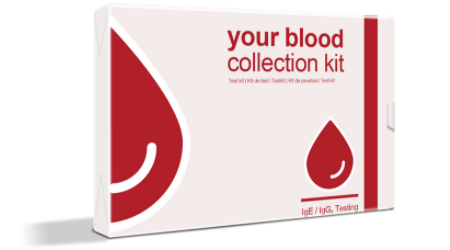As individuals, our reactions to food and drink vary widely. An ingredient that can cause problems to one person may be quite acceptable for another. This is known as an individual suffering from food intolerance. Be careful to make sure you know the difference between a food allergy and intolerance as potential food allergies are potentially life-threatening. If you suspect that you are suffering from food allergies then you need to consult your doctor immediately.
It is important to understand your personal food intolerances (food and drink), and the effects they may have on your health and well-being, to ensure you make the best choices for your diet.
What is gluten intolerance?
If you have gluten intolerance, your body produces an inflammatory response to gluten proteins. Gluten is found in foods processed from wheat and related grains, giving elasticity to the dough, helping it to rise and stay in shape.
If you suffer from gluten intolerance, avoid eating wheat and similar cereals. However, if you only suffer from wheat intolerance, you do not necessarily need to avoid gluten.
Where to look:
Gluten is found in wheat, rye, barley and all foods made with these grains. It can be difficult to identify all the foods you should avoid because these grains are often used as thickeners in processed foods, sauces and even meat products. It is important to check the ingredient labels. Foods to avoid If you experience symptoms of gluten intolerance, include:
– Wheat (starch, bran, and germ)
– Couscous
– Hard and cracked wheat
– Farina
– Faro
– Gliadin
– Semolina
– Spelled
– Bulgur
– Barley
– Rye
Replacements for a balanced diet
To ensure you maintain a balanced diet that provides the carbohydrates, fibre, and vitamins you need, you can complement your meals with a variety of gluten-free alternatives such as:
– Rice
– But but)
– Buckwheat
– Millet
Corn intolerance: What is corn intolerance?
If you have an intolerance to corn, your body produces an inflammatory response to proteins found in foods or drinks containing corn.
Where to look
As a direct ingredient, corn can be removed from the diet quite easily. The following foods should be avoided if you have corn intolerance:
– Corn on the cob
– Canned sweet corn
– Baby sweet corn
– Tortillas, tacos or enchiladas with corn flour
– Corn or corn chips
Other names of Corn
Corn is used in making many different food ingredients. It is important to be aware of this when making changes to optimize your diet. The following list of ingredients should be avoided if you have an intolerance to corn:
– Dextri-maltose
– Dextrins
– Dextrose
– Fructose
– Glucose and glucose syrup
– Grain starch
– Modified starch
– Vegetable oil
– High Fructose Corn Syrup (HFCS)
Replacements for a balanced diet
If you have symptoms of corn intolerance, you could include the following alternatives in your diet:
– Corn
– Rye
– Rice
– Lenses
If you have discovered that you are intolerant to corn, it is not necessary to change your diet to discourage you. If you have any questions, please log on to www.testyourintolerance.ca in order to find out more about dealing with your symptoms.
For more information about food allergies and food intolerances, please click here. Remember, if you are suffering from food allergies or are experiencing symptoms, please log on to www.testyourintolerance.ca to find out more.


